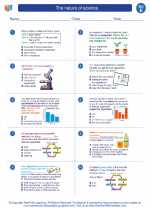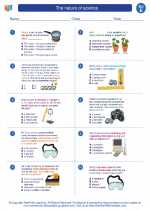Resource Extraction
Resource extraction is the process of obtaining natural resources from the Earth. These resources can include minerals, fossil fuels, water, timber, and other materials that are essential for human survival and economic development. The extraction of these resources is a crucial part of many industries and plays a significant role in shaping the environment and the economy.
Types of Resource Extraction
There are several types of resource extraction:
- Mining: This involves the extraction of minerals and other geological materials from the earth, including coal, gold, silver, copper, and more.
- Logging: This refers to the cutting and removal of trees for timber, wood products, and paper production.
- Oil and Gas Extraction: This involves the drilling and extraction of crude oil and natural gas from underground reserves.
- Water Extraction: This includes the collection of freshwater from sources such as rivers, lakes, and groundwater for human consumption, agriculture, and industrial use.
- Fishing: This is the extraction of fish and other seafood from oceans, rivers, and other bodies of water for commercial and recreational purposes.
Environmental Impact
Resource extraction can have significant environmental impacts, including habitat destruction, soil erosion, water pollution, and deforestation. It can also contribute to air and water pollution, greenhouse gas emissions, and loss of biodiversity. Sustainable and responsible resource extraction practices are essential to minimize these negative effects and protect the natural environment for future generations.
Study Guide
Here are some key points to consider when studying resource extraction:
- Define resource extraction and its importance to human society.
- Identify and describe the different types of resource extraction activities, including mining, logging, oil and gas extraction, water extraction, and fishing.
- Discuss the environmental impacts of resource extraction and the importance of sustainable practices.
- Examine the economic and social implications of resource extraction on local communities and global markets.
- Research specific examples of resource extraction activities and their effects on the environment and society.
By understanding the complexities of resource extraction, its impacts, and the need for sustainable practices, we can work towards a more balanced and harmonious relationship with the natural world.
[Resource Extraction] Related Worksheets and Study Guides:
.◂Science Worksheets and Study Guides Fifth Grade. The nature of science

 Worksheet/Answer key
Worksheet/Answer key
 Worksheet/Answer key
Worksheet/Answer key
 Worksheet/Answer key
Worksheet/Answer key
